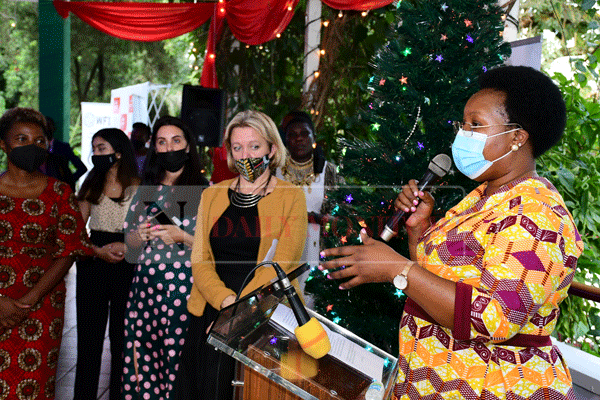Prime
The harsh reality of the boy-child

Habiibu Sseruwagi
What you need to know:
- As the boy-child grows to manhood, he is faced with a diversity of challenges such as domestic violence, among others, the burden of providing livelihood for the family as father and husband, even when the wife earns more than the husband.
Growing up in Africa has become more and more of a harsh-reality for the boy child. The cultural constructs coupled with the societal expectations threaten to endanger the freedoms and opportunities of the boy child. It is common knowledge that most of the African cultures have placed very high expectations on the tender shoulders of the boy child.
As the boy-child grows to manhood, he is faced with a diversity of challenges such as domestic violence, among others, the burden of providing livelihood for the family as father and husband, even when the wife earns more than the husband.
On various occasions, there have been cases of men being victims of domestic violence mostly verbal and psychological/ mental violence at the hands of their spouses or family members (children/relatives). On such occasions however, often times culture dictates that a man should be strong and therefore not report. Consequently, such issues are left papered over and concealed so as to seemingly maintain the status quo of societal expectations.
On the other hand, the numerous campaigns that have sought to elevate the girl child have voluntarily or involuntarily threatened to marginalise the boy child and male gender for that matter.
It is true that historically, women and girls have been and are still faced with injustices and discriminations which are vivid and clearly spelt out such as having no share on family property, leadership positions, being treated as a source of income for the family in form of bride price and countless other misgivings.
Since the inception of the campaign for women emancipation tracing its routes in the 1884’s “Declaration of Sentiments” right through 1960s Womens Rights Movement, several interventions have been rightly put in place to promote the girl-child and women in general.
These interventions have been in form of job opportunities specific to women, scholarship for women, medi-care for women, laws and campaigns against abuse of women, policies and political positions earmarked for women and so many others. The reality and the need to promote women has gathered pace and been so aggressive that even at family level, sometimes there are discriminations in form of provision of needs for school and university. Sometimes girls who are rightly considered vulnerable are fully catered for while the boys are somehow left to languish and fend for themselves. It is no wonder that some of the young men are resorting to unbecoming behaviour like joining gangs and even easily being enlisted into undesirable behaviour as a way of survival.
The term gender on the other hand is often misinterpreted to mean that which pertains to girls and women only. According to the Equal Opportunities Commission Act 2007, Gender is defined as the social and cultural construct of roles, responsibilities, attributes, opportunities, privileges, status, access to and control over resources and benefits between women and men, boys and girls in a given society. This differs from society to society. The definition by EOC Act clearly stipulates that there is need to accord that which is due to both boys and girls and women and men but with a view of promoting equity and social justice.
Perhaps this delicate matter of emancipation needs not to be handled with such extremism and aggression but rather with a balanced approach and moderation, bearing in mind that vulnerability is dynamic and applies to both girls and boys, men and women. Consequent to this is the need to come up with interventions that uplift both and not only one party at the expense of the other so as to attain equal access and benefit from resources for all people.
Habiibu Sseruwagi is a member of the Equal Opportunities Commission.




